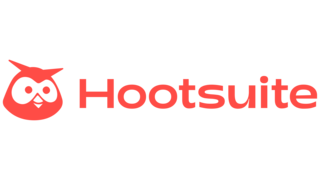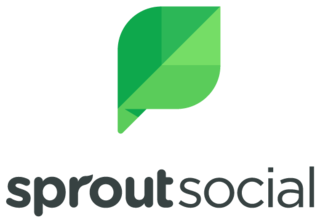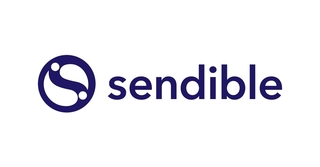7 Best Social Media Management Software
In today's digital landscape, many customers will first turn to a company's social media platforms even before researching customer reviews. However, navigating and managing multiple social media profiles can be tough to accomplish independently, which explains why so many businesses are turning toward reliable social media management tools.
Social media management solutions make it easier for businesses to stay connected with their audience while saving them valuable time. Not only do these software programs allow users to automate processes, but they also provide insight into how businesses can expand their reach to drive growth.
In this guide, we review some of the best social media management software of 2023 so you can decide which is best for your business. We also share which metrics to focus on when looking for a social media management platform that can help you increase your reach and craft more relevant brand messaging. Read on to find out more.
Our Top Picks for the Best Social Media Management Software
- Hootsuite – Best for Nonprofits
- Sprout Social – Best for Agencies
- Buffer – Most Affordable
- Sendible – Best for Customer Support
- Agorapulse – Best for Small Businesses
- SocialBee – Best for Solopreneurs
- Metricool – Best for Analytics
- Ads analytics and reporting features
- Track team performance and create reports
- User-friendly interface and integration with 150+ platforms
- Provides social media management classes for beginners
- No competitor data tracking or trend suggestions
- No hashtag generator
Why we chose it: We chose Hootsuite as the best social media management software for nonprofits for its wealth of educational resources and tools for small teams. It also provides discounts to non-profit organizations, allowing them access to helpful features like social insights and brand monitoring without breaking the bank.
For over a decade, Hootsuite has been the industry leader in social media management. As the world's first platform of its kind, it has continued to stay ahead of trends by rolling out features such as ads analytics and reporting, a content and asset library, team productivity reporting workflows, research reporting and integration with over 150 tech platforms.
Some of Hootsuite's standout features include mention alerts, an AI messenger and an easy-to-use dashboard for tracking customer conversations and interactions. Hootsuite Insights, powered by Brandwatch, provides users instant access to millions of online conversations in real time. Companies have the ability to search for any topic or keyword within those conversations and filter results by date, demographics, location and other geographical information.
Hootsuite's data analytics features can help companies identify thought leaders within their industries and give them a better understanding of how they are perceived in the marketplace. Its mention alerts also allow businesses to react to comments on Twitter and Facebook without leaving Hootsuite, saving them valuable time.
- Has the largest list of integrated platforms
- Offers live phone and chat support
- Ability to share scheduled content through links
- Expensive standard plan
Why we chose it: Sprout Social is our top pick for the best social media management platform for agencies due to its compatibility with multiple social networks, blog hosting sites and third-party applications. It offers a single unified solution for agencies managing numerous clients and brand partnerships, especially those that have an active presence on several different platforms and require one database to monitor KPIs.
Sprout Social is a powerful social media platform that provides brands and agencies with the tools they need to manage conversations and uncover useful insights through their Smart Inbox integration. This tool gathers messages across all social profiles into one community engagement workflow view. Agencies can also benefit from Sprout's analytics capabilities, which provide insights on campaign performance, conversion rates, engagement and more.
Sprout integrates with all social media platforms and blog hosting sites as well as an assortment of third-party apps, making it an all-in-one centralized solution for social media management. It allows users to schedule posts in advance and track hashtags, mentions and content performance.
Sprout users can also measure engagement, identify publishing trends, monitor community participation and read customer feedback. With these features at users' disposal, agencies can begin to make data-driven decisions to take their business operations to the next level.
- Offers a free basic plan and free trial
- User-friendly
- Provides video tutorials for each feature offered
- 3 social media channels with free plan, bill per channel on premium plans
- Monthly cap on the number of posts per platform
- Scheduler requires business Instagram and TikTok profiles
Why we chose it: Out of the companies we reviewed, Buffer offers the most value for your money. Its introductory plan starts at just $6 per month and includes a 14-day free on any membership tier as well as a complimentary basic subscription — this makes them an ideal solution for independent creators with limited funds.
Buffer's free plan allows users to connect up to three social media accounts and schedule a maximum of 10 posts. You can publish to all the major social media platforms, including LinkedIn and Pinterest, and access basic analytics capabilities to track the performance of your campaigns.
Those who need advanced analytics and insights or the ability to collaborate with team members will have to consider one of Buffer's paid tiers. These also provide customers with additional features such as the ability to create, save, preview and schedule Twitter threads for their brand.
One of Buffer's most advantageous features is its Composer tool, which enables users to draft and save ideas and create unique messages for each social network. Other Buffer features include a browser extension that allows you to quickly share content from any site and publish to multiple platforms simultaneously and integration with WordPress, Zapier and Canva, among others.
- Human customer service
- Offers live chat hours and group training sessions
- No competitor tracking
- No hashtag generator
- Social accounts limited to 1 user under basic plan
- Customer support hours based on UK time zone
Why we chose it: Sendible is our top pick for live customer support thanks to its on-demand human advisors. Support is available to all membership levels and includes access to a help desk, live chat hours and even a one-on-one onboarding process customized to the users' unique social media optimization needs. These features make Sendible a cost-effective and scalable social media management solution.
Sendible provides a range of support options so users can connect with a Sendible team member for assistance. Customer service is available between 8 am and 8 pm GMT, therefore, users in North America should remember to adjust their schedules accordingly. Users should also consider daylight savings time changes when using the platform's scheduling feature for social media posts.
Sendible allows users to easily stay connected on a multitude of social media networks, such as Facebook, Twitter, Instagram and LinkedIn. They can also respond to comments on Facebook Ads directly from the Sendible dashboard and connect to blog platforms like WordPress and Medium.
Teams looking for a social media management platform will be glad to know that Sendible also features a team calendar view and task assignment feature. Users streamline workflows through integrations with Google Analytics, Google Drive and other tools.
- Offers a free basic plan
- Around-the-clock customer service with 16-minute response times
- Post to Instagram via push notifications
- Instagram posts with multiple photos only available on mobile app
Why we chose it: Agorapulse as our top choice for small businesses because it allows social media managers to gain valuable insights into their campaigns and accurately measure the ROI of their marketing efforts. With this tool, businesses can easily understand what works best for their brand and make more informed decisions when planning upcoming promotional campaigns.
Agorapulse also has a shared calendar that enables users to effortlessly share scheduled content across multiple calendars and grant editing access to collaborators via a "magic" link. Those with the link don't need an account on Agorapulse to accept or reject scheduled content and provide feedback.
Agorapulse also offers users the option of either setting up an automated Instagram publishing workflow or getting push notifications that require them to manually publish content. These notifications can serve as a helpful reminder for users to edit their stories and review posts before they go live — they can even insert IG stickers as they would directly on Instagram.
- User-friendly
- Access concierge services without a paid license
- Provides customer support over the phone through initial onboarding
- 30-day money-back guarantee
- No YouTube integration
Why we chose it: We selected SocialBee as the best social media marketing platform for solopreneurs because of its concierge services. These can be a great option for coaches, authors and freelancers who have limited resources for managing their social media campaigns. SocialBee's concierge social media specialists are dedicated to specific tasks related to social media management, offering additional support to companies that don't have a lot of social media expertise or manpower.
SocialBee's concierge specialists can help users complete tasks from crafting posts for social media platforms to writing compelling copy and managing community outreach. Businesses can access these services without committing to a long-term subscription. Additionally, SocialBee offers month-to-month plans so businesses aren't tied down by contracts and can sign up for services on an as-needed basis.
Besides offering concierge services that grant users access to content marketing specialists, SocialBee also integrates automation features that speed up content creation and publication. For example, you can automatically publish content based on specific triggers like the use of certain keywords or hashtags. SocialBee also uses AI to analyze your social media activity and provide customized content recommendations.
- Offers a free basic plan
- Has a video tutorial library
- Offers a social media competitor analysis
- No live customer support center
Why we chose it: We chose Metricool as the best social media management software for analytics because of its competitor analysis feature, which allows users to gain insight into what competitors are doing on different social networks. They can then use that data as inspiration for fresh content that has been tested and found to be successful. Moreover, analytics features and access to Instagram hashtags are available through Metricool's "free forever" plan.
Metricool can help users simplify social media management through measurement and scheduling capabilities that work across various platforms. Besides adding new features every month, the company offers a comprehensive library of resources — including easy-to-follow guides with embedded videos and educational content on its YouTube channel — to help users get up and running with social media. Whether users are just getting started or want more advanced analytics training, Metricool has them covered.
Other companies we considered
Although these are still outstanding choices, they didn't quite have all the features we deemed essential to rank among the best social media management platforms.
Zoho Social
- Canva integration
- Create customer support tickets from social media comments
- No CRM features with the basic plan
- Premium Membership Required for video content
- Canva integration not compatible with videos of GIFs
Zoho Social features a dashboard from which users can see their brand health across different social media platforms. This gives them better insight into their target audience through snapshots that display their engagement rate and traffic sources.
Additionally, the software integrates with Zoho CRM and Zoho Desk tools, which allow users to monitor customer issues on their social media accounts and create instant support tickets. It also connects with Canva, so you can design posts without leaving Zoho Social.
Despite Zoho's vast array of software integrations, it's not a budget-friendly option for those looking to create video content. Users are limited to static or carousel posts unless they upgrade to a Premium Membership. Furthermore, they are unable to create posts that incorporate videos and GIFs through the Canva button on Zoho Social.
Tailwind
- Offers Free basic plan
- Includes customizable "link in bio" feature
- Email management integration
- Limited social media channel integration
Tailwind is a top option for Pinterest and Instagram marketing, especially for businesses such as online retailers, creators, local service providers, hospitality outlets and marketers. Tailwind's Create platform allows you to design brand-related images, while its email marketing service can help you create entire campaigns using templates. The company even purchased Replier.ai –– an AI software designed to assist in drafting marketing copy.
While Tailwind leads in developing features that are compatible with visual platforms like Pinterest and Instagram, it lacks integrations with other social media sites. This means prospective customers still need to use another platform to post content on different networks. When compared to our list of best social media management software, Tailwind has more limitations.
Planoly
- Offers free basic plan
- Includes customizable "link in bio" features
- Canva integration
- Affordable plans
- Limited social media channel integration
- Limited reporting capabilities
- No competitor data tracking
- Trend suggestions only available for TikTok
Planoly was the first visual planner for Instagram, combining a social media calendar for content scheduling with strategic planning tools so users could see a curated upcoming content feed on a single dashboard.
Though impressive and useful in its own right, other similar management platforms offer a wider range of integrations and features. For example, Planoly's scheduling tool allows users to post to TikTok, Instagram and Pinterest only. In order to post content on platforms like Facebook, Twitter, or YouTube, users must go through the extra step of reposting from Instagram or TikTok.
Further, the platform doesn't supply users with competitor analysis data to ascertain how their social media content fares against similar material. What's more, current trend insights are available for TikTok only.
SocialPilot
- Can cancel account anytime, no contracts or commitments needed to sign-up
- Integrates with a list of other platforms
- Offers ThreadMagic integration
- No onboarding assistance or support team with premium membership
- 24-hour turnaround time for help ticket response
SocialPilot recently unveiled ThreadMagic, an integration that permits users to effortlessly export Twitter threads into eye-catching PDFs organized in an engaging carousel design. Users can easily bring conversations initiated on Twitter over to LinkedIn and ignite community engagement on other social media platforms. ThreadMagic creates a quick and easy way to transform Twitter threads into eye-catching infographics by copying the thread's URL and pasting it into the conversion field box within the ThreadMagic landing page. After which, an attractive scrollable infographic will be generated.
While SocialPilot is well-regarded for its expansive list of integrations including Slack, Zapier, Sniply, Rebrandly, Bitly, Feedly, Canva and Box; it lacks a user-friendly onboarding process which can be frustrating to beginner social media marketers or small businesses. To access assistance users must reach out via customer support ticket with an average wait time of 24 hours before receiving a response.
Loomly
- Offers graphic Integration
- User-friendly team collaboration interface
- Offers multiple platform social media post ideas
- Unable to access detailed analytics with basic plan
- Unable to support Instagram story add-on features
Loomly stands out as an all-in-one collaborative social platform for custom posts, RSS feeds, and Twitter trending topics that let businesses easily manage their entire social media communication strategy and keep track of all their assets in one place with integration for Zapier, Giphy, and Unsplash. Not only does this reduce time wasted trying to piece together various tools from different vendors, but it also frees up marketing teams so they can focus on delivering great results for their organization.
Although Loomly provides a comprehensive and collaborative user experience. It does not however, support most of the Instagram story features users enjoy including in their Reels and Story posts such as audio, GIFs, and even GIF replies to stories. Users who are on the basic plan do not gain access to detailed analytics reports - to access this exclusive feature, they would need to upgrade.
Later
- Offers free basic plan
- User-friendly
- Limited social medial channel integrations
- No YouTube integration
Later is a social media marketing platform that provides features such as visual scheduling for maximum efficiency, analytics to better understand audience behavior, media management tools that streamline content organization processes, and social media strategy insights aimed at driving sales.
Although Later's platform is user-friendly, it lacks integration with some social media platforms, For example, users can't post content directly to YouTube.
Social Media Management Software Guide
The following guide covers the benefits and average cost of using social media management software, as well as tips on how to pick the best one for your needs.
Main things to know before choosing social media management software
According to marketing strategist and content creator Latasha James, the main thing to determine before choosing a social media management software is what you want to use it for.
If you’re looking for automation, you’ll want to opt for software with good social media scheduling functionality. For example, some social media management tools publish your reels automatically, while others send you reminders for you to post them manually, she explains.
Another important consideration when choosing social media management software is whether you want to take a more data-driven approach to your marketing strategy. "Some people prefer to use these tools for their analytics," Jame states. “That's my strategy. At the beginning of each month, I want to have a good plan for what's going out based on data."
So, while a set-it-and-forget-it approach may work for some, others may want more value than just a content calendar. Some of the tools on our list, like Metricool, provide real-time competitor analysis integration that can help users make more informed decisions about when they should post, what to post and why.
One last, and perhaps less obvious, consideration is the look and feel of the platform’s dashboard. "There are little differences between each of them, so if visuals are important to you, that may be something to consider as well,” says James.
What is the average cost of social media management software?
The pricing of social media management software varies by plan and features. Some of the best social media management tools have free basic plans but also sell more advanced packages starting at $30 to $60 per month.
Businesses investing in a social media management platform for their marketing strategy should compare different packages and weigh pricing against the features that best meet their needs and team size.
How does social media management software work?
Social media management software enables businesses to manage all of their social media accounts in one place. Users can schedule and post content, create campaigns and track their performance, monitor conversations through a single social inbox, engage in team collaboration and target audiences for ads — all from within the platform.
With the right social media management tool, users can plan their content ahead of time and organize it into calendars for easy visual navigation. They can also track the performance of their social media posts through analytics features like sentiment analysis.
This information can help businesses identify trends, get insights into how people react to their content, and ultimately make more informed decisions about where to invest their resources.
What are the benefits of using social media management software?
Some of the benefits of using social media management software include:
- Time management: Managing all of your social media accounts yourself can be time-consuming. A social media management tool allows you to schedule and publish content on different platforms simultaneously from a single dashboard.
- Better collaboration: By utilizing a social media management tool, teams can effortlessly collaborate and remain organized by taking advantage of its CMS integration, file hosting capabilities, post mockup features, email approval workflows, shared editorial calendars and design schedulers. This ultimately makes it easier for teams to stay on task and ensure their projects are completed efficiently and on time.
- Analytics and reporting: Most social media management software offers analytics and reporting features that can help you track how your social media campaigns are performing and determine where you can improve. Some also include competitor analysis features that tell you how well your content tracks against similar posts.
Social media management software FAQs
Which is the best Instagram management tool?
Is it worth having social media management software?
When is the right time to buy social media management software?
What are the best free tools to help manage social media?
How we found the best social media management software
While there is no one-size-fits-all best social media management software, we conducted extensive research to find the best solutions for companies of all sizes.
We consulted experts, read user reviews, looked into customer service ratings, and evaluated each platform’s features, including pricing options, ease of use, flexibility and scalability, and integration with major social media networks such as YouTube, Instagram, TikTok, Twitter and LinkedIn.
Depending on your specific goals, needs and budget, any one of the solutions we've reviewed could help you manage and optimize your social media presence.
Summary of the best social media management software of 2023
- Hootsuite – Best for Nonprofits
- Sprout Social – Best for Agencies
- Buffer – Most Affordable
- Sendible – Best for Customer Support
- Agorapulse – Best for Small Businesses
- SocialBee – Best for Solopreneurs
- Metricool – Best for Analytics








